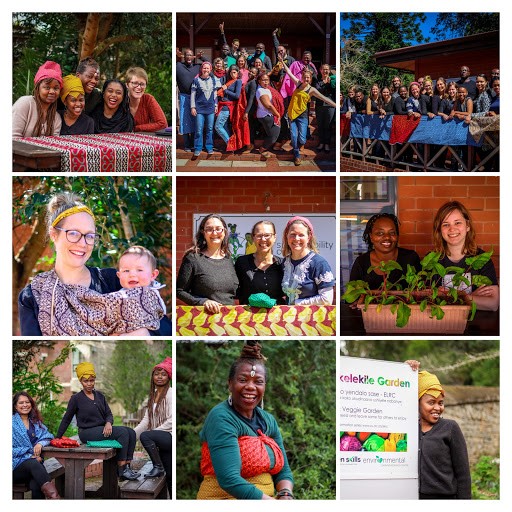
ENVIRONMENTAL LEARNING RESEARCH CENTRE
 The Environmental Learning Research Centre is the home of a vibrant and diverse community of scholars and environmental education practitioners, and forms a regional hub of environmental learning innovation.
The Environmental Learning Research Centre is the home of a vibrant and diverse community of scholars and environmental education practitioners, and forms a regional hub of environmental learning innovation.
The centre hosts a postgraduate research programme of between 50-60 Master and PhD scholars. It runs a Masters in Education programme on Regenerative African Futures and Education for Sustainable Development, and a leading PhD programme in this field on the African continent. It also teaches an innovative Postgraduate Diploma in Sustainability Learning.
The ELRC works with local, national, regional and international partners to develop research-informed and research-led short and certificate courses. The research and teaching programme of the ELRC continues to increase in size and scope and enjoys a high demand for its courses and programmes.
The ELRC hosts two research Chairs: A Tier 1 DSI/NRF SARChI Chair in Global Change and Social Learning Systems, and a RU Chair in Environment and Sustainability Education. It enjoys collaborative partnerships with over 50 partners across the world. Through these research and policy partnerships, centre aims to promote and encourage social scientific methodological innovation to produce knowledge of African education and social–ecological contexts. At any one time, we have a diversity of research programmes on the go to which our Masters, PhD and post-doctoral scholars all contribute.
In support of this collaborative approach to knowledge-building, the ELRC’s Sustainability Commons has been developed as a space for social innovation, engaging the border zones between the academy, public sector and civil society; between theory and practice; and knowledge, learning and human agency. Our research programmes contribute broadly to the Sustainability Commons and to Education and Social-Ecological System transformations.
Since 1992, the Environmental Education programme at Rhodes University has successfully graduated 177 Masters scholars (with a supervision team of 2 for most of the time), and 53 PhD scholars with many of our graduates holding leading positions in the field nationally and internationally.
Our history
The ELRC was established 30 years ago through the Murray & Roberts Chair of Environmental Education, Africa’s first and only Chair of Environmental Education. In 1997, the ELRC expanded to include the Gold Fields Service Centre, forming the Rhodes Environmental Education Unit, which offered expanded professional development, and policy development services to South African post-apartheid system building, and South Africa’s expanded interactions within SADC. It started the SADC International Certificate Course in Environmental Education, which graduated over 1000 professionals in the Southern African region.
In 2007 the programme at Rhodes University was recognised by the United Nations University and the Ubuntu Commission as a UN Centre of Expertise in Education for Sustainable Development. It is one of 11 such centres in Africa, and is part of a global network of such centres providing expertise to strengthen educational practices that support sustainable development. The ELRC has contributed to various international policy processes including the UN Decade on Education for Sustainable Development and most recently the development of 2021 SADC Regional Strategic Framework for ESD, and the 2023 UNESCO Recommendation on Education for Peace, Human Rights and Sustainable Development.
Sustainability Practices and Co-Engaged Learning
The ELRC supports a number of small-scale demonstration projects which support sustainability learning. The focus is on community engaged research to support learning to adopt/adapt such sustainability practices. Some of the organisations we work with locally include include the student environment committees, Umthathi Training Project, Makhanda Circle of Unity, Imvothu Bubomi Learning Network, and Makana River Rescue amongst others. We also support co-engaged arts-based programmes that often link to the National Arts Festival which is hosted annually in Makhanda.
Last Modified: Mon, 10 Jun 2024 12:38:26 SAST
